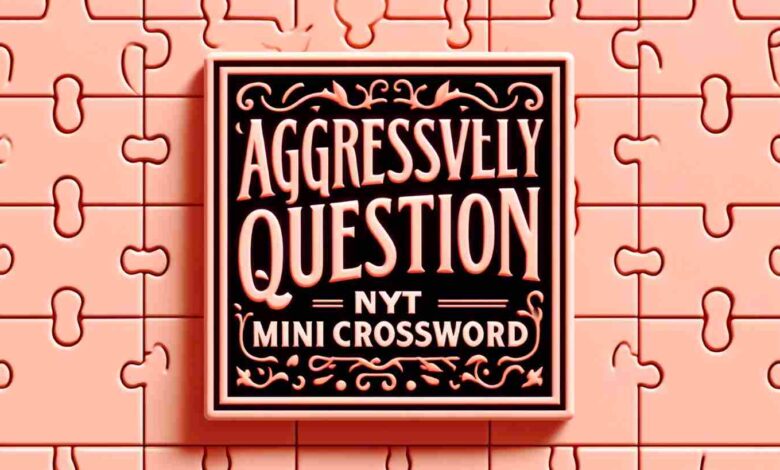Aggressively Question nyt the New York Times: A Comprehensive Guide

In today’s world, the role of journalism is more important than ever. The New York Times (NYT) is one of the most respected and influential newspapers globally. However, like all institutions, it has come under scrutiny for its editorial decisions, reporting, and the narratives it shapes. If you’re interested in learning how to aggressively question NYT, you’re in the right place. This article will guide you through the process, covering various aspects of critical questioning, understanding biases, and engaging with the media in an informed and constructive way.
Understanding the Power of the New York Times
Before diving into how to aggressively question NYT, it’s essential to understand why this publication holds such power. The New York Times has been a dominant force in journalism for over a century. It has shaped public opinion, influenced policy, and held power to account. However, as a major media outlet, it also holds significant responsibility, which means that its coverage deserves rigorous scrutiny.
Key Factors Behind NYT’s Influence:
- Global Reach: With millions of readers across the world, NYT has a broad audience that listens to its opinions.
- Investigative Journalism: NYT is known for its in-depth investigative reporting that uncovers scandals and exposes truths.
- Political and Cultural Influence: Many political leaders and cultural figures read and react to its editorial decisions.
Given this influence, it’s crucial to approach its content with a critical eye. Aggressively questioning the NYT doesn’t mean rejecting it entirely; rather, it involves an active, thoughtful engagement with its reporting.
The Need to Aggressively Question the NYT
Why should anyone aggressively question the New York Times? After all, it’s a respected publication, right? While the NYT is known for high-quality journalism, no institution is perfect. Aggressively question the NYT allows readers to maintain a level of objectivity and ensures that reporting remains accountable.
Why It’s Important to Ask Hard Questions:
- Bias and Objectivity: No media outlet is free from bias, and understanding the NYT’s perspective helps you identify where it may be shaping its stories.
- Corporate Influence: Like any large organization, the NYT can be influenced by its corporate interests, advertisers, and political connections.
- Accountability: By questioning the NYT’s reporting, readers ensure that the paper stays accountable to its readers and its ethical standards.
When you learn to aggressively question NYT, you become more discerning in your media consumption and more empowered as a citizen.
How to Aggressively Question the NYT
To aggressively question NYT, you need a systematic approach. It’s about asking the right questions, understanding the context of the story, and identifying potential biases.
Key Areas to Focus on:
- Headline Accuracy: Headlines often shape how we perceive the story. Are they misleading or sensationalized?
- Source Transparency: Who are the sources behind the story? Are they credible and reliable?
- Framing and Language: How does the language used in the article frame the issue? Is it neutral or biased?
- Omission of Information: Does the article leave out critical details that might change the story’s narrative?
- Balance and Fairness: Does the NYT provide multiple viewpoints, or does it only present one side of the story?
By focusing on these areas, you’ll be in a better position to challenge the NYT’s narratives when necessary.
Identifying Bias in the NYT
All media outlets have some degree of bias, and the NYT is no exception. Recognizing bias in its reporting is one of the core skills involved in aggressively questioning the NYT.
Types of Bias to Watch Out For:
- Political Bias: Is the NYT slanting its coverage in favor of a particular political ideology or party?
- Corporate Bias: Does the paper have ties to large corporations or industries that could affect its reporting?
- Cultural Bias: Are certain cultural perspectives being presented more favorably than others?
By learning to spot these biases, you’ll become a more informed reader, and you’ll be able to understand how the NYT’s narratives may be shaped by factors beyond the facts.
Fact-Checking: A Critical Tool in Questioning the NYT
One of the most effective ways to aggressively question NYT is through fact-checking. In the age of misinformation, it’s vital to verify the facts presented in any article, even from respected sources like the NYT.
Steps to Fact-Check:
- Cross-reference Multiple Sources: Don’t rely on just one article. Look at multiple sources that report on the same issue.
- Check the Original Source: Whenever possible, trace back to the source of the information used in the article.
- Use Fact-Checking Websites: Websites like Snopes and PolitiFact are excellent resources for verifying facts.
Fact-checking allows you to engage with the NYT in a meaningful way, ensuring that the information you’re reading is accurate and trustworthy.
Engaging with the NYT’s Editorial Decisions
Another important aspect of aggressively questioning the NYT is evaluating its editorial choices. Editorial decisions have a profound impact on the stories that make it to print and how they are presented.
Key Areas to Evaluate:
- Editorial Stance: What stance is the NYT taking on an issue? Does it align with its usual political or cultural leanings?
- Selection of Stories: How does the NYT choose which stories to cover? What stories are omitted, and why?
- Tone and Language: Is the editorial tone objective, or does it lean toward advocacy for a particular cause?
By looking critically at these editorial decisions, readers can gain insight into the broader narrative that the NYT is attempting to craft.
Ethical Considerations in Aggressively Questioning the NYT
While it’s important to question the NYT, it’s equally important to do so in an ethical and respectful manner. Aggressively questioning the NYT should not devolve into personal attacks or baseless accusations.
Ethical Guidelines:
- Focus on the Content, Not the Writer: Critique the information presented, not the individual journalist.
- Be Respectful in Your Disagreement: Healthy debates and criticisms can be constructive when done respectfully.
- Use Evidence to Back Your Claims: Whenever you challenge the NYT, ensure that your arguments are grounded in evidence and facts.
By following these ethical guidelines, you ensure that your questioning is both effective and productive.
Tools for Questioning the NYT
If you’re serious about aggressively questioning the NYT, various tools at your disposal can help you gather the information you need.
Useful Tools and Resources:
- Media Bias/Fact Check Websites: These sites can help you determine the political leanings and reliability of news outlets like the NYT.
- News Aggregators: Services like Google News allow you to track stories from various sources and compare how different outlets, including the NYT, report on the same issue.
- Social Media: Platforms like Twitter and Facebook can be valuable for tracking public reactions to NYT articles and identifying potential biases.
By using these tools, you can enhance your ability to critically analyze the NYT’s reporting.
The Benefits of Aggressively Questioning the NYT
You might wonder: What’s the benefit of aggressively questioning the NYT? Why not just accept it as a trusted source? The truth is, that questioning the NYT helps you become a more informed and critical consumer of news. By developing a discerning eye, you can better navigate the complex media landscape and avoid being misled by false narratives.
Benefits:
- Improved Critical Thinking: By analyzing news articles closely, you’ll develop stronger critical thinking skills.
- Better Understanding of Media: You’ll gain a deeper understanding of how the media operates, including its biases and agendas.
- Empowerment: Questioning the media empowers you to make informed decisions, both as a reader and as a citizen.
Conclusion: Keep Questioning and Stay Informed
In conclusion, learning how to aggressively question NYT is a crucial skill for today’s information-rich world. It involves understanding the power of the NYT, identifying biases, fact-checking information, and questioning editorial decisions. By using the tools and techniques outlined in this article, you can become a more informed, discerning reader. Remember, the key is not to reject the NYT entirely but to engage with it thoughtfully and critically.
By consistently questioning the media, you not only hold news outlets accountable but also contribute to a healthier, more informed public discourse. Keep questioning, stay curious, and never stop learning.

